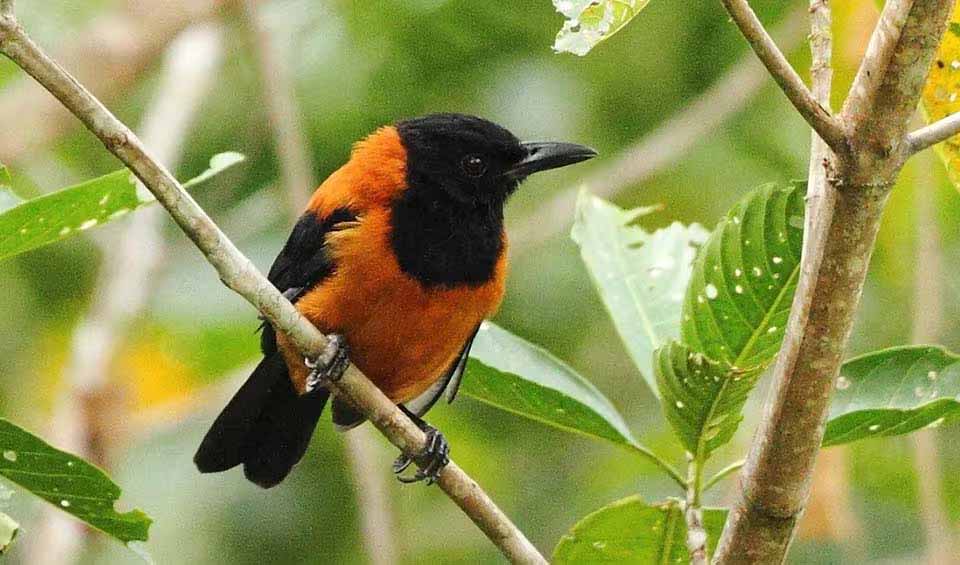Pitohui – Pitohuis
The poisonous nature of the birds in this genus distinguishes them from other bird species
Pitohuis stand out in the avian world not only for their striking black and reddish plumage but also for their unexpected danger. While they may appear innocuous perched on branches, these birds harbor a hidden threat within their skin and feathers: potent poison.
The toxicity of pitohuis was discovered quite by accident when a researcher attempted to free a trapped bird from a net and experienced a burning sensation in his hand upon contact with the bird’s skin. The sensation quickly spread to his mouth, prompting him to instinctively withdraw his hand, inadvertently preventing the toxin from entering his bloodstream through a bite. This encounter revealed the remarkable presence of toxins within the bodies of these seemingly harmless birds.
The poison found in pitohuis is unique among birds, setting them apart from all other genera. Researchers have identified various toxins within the skin and feathers of pitohuis, which serve as a potent defense mechanism against predators. The degree of toxicity can vary between species, with the hooded pitohui (Pitohui dichrous) being the most notorious for its lethal properties. The toxins present in pitohuis have been identified as batrachotoxins, the same class of toxins found in poison dart frogs and certain species of poison dart beetles.
The evolutionary origins of toxicity in pitohuis remain a subject of scientific inquiry, with researchers seeking to unravel the genetic and ecological factors that have led to the development of this unique adaptation. Some theories suggest that the toxins may be derived from the birds’ diet, which includes toxic beetles and insects. Alternatively, the toxins may serve as a deterrent against parasites or as a means of deterring predators.
Despite their toxic defenses, pitohuis play important ecological roles within their native ecosystems. As omnivorous birds, they consume a variety of insects, fruits, and seeds, contributing to the balance of their forest habitats.
Species in this genus
Hooded pitohui
The most poisonous living pitohui species


